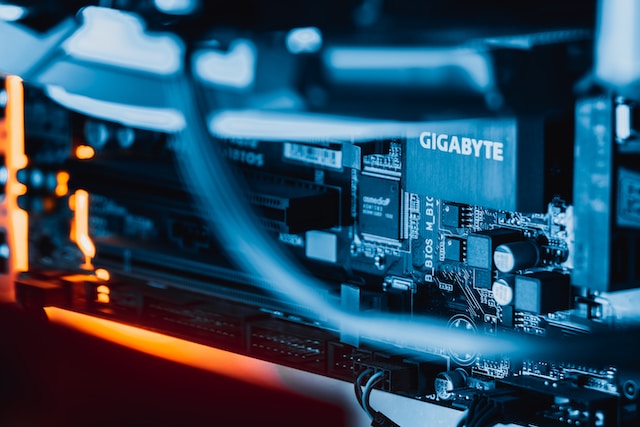Introduction
In the rapidly evolving landscape of urban development. The concept of smart cities has emerged as a beacon of innovation and sustainability. At the heart of this transformation lies the Internet of Things (IoT). A technology that has revolutionized the way cities operate, communicate, and grow. The impact of IoT on smart city development cannot be overstated. It is reshaping urban landscapes, enhancing the quality of life, and setting new benchmarks for efficiency and connectivity. In this comprehensive exploration, we delve into how IoT is powering smart city initiatives and what this means for the future of urban living.
The Foundation of Smart Cities: Understanding IoT
IoT refers to the network of physical objects, or “things,” embedded with sensors, software. Other technologies for the purpose of connecting and exchanging data with other devices and systems over the internet. This foundational technology is what makes smart cities “smart.” From traffic management to waste disposal, IoT devices provide the data and connectivity needed to optimize urban services.
Enhancing Urban Infrastructure with IoT
Smart Traffic Management
One of the most visible impacts of IoT in smart cities is in traffic management. Sensors and cameras mounted at intersections gather real-time data on traffic flow, which, when analyzed, can adjust traffic signals to reduce congestion. Examples from cities like Singapore show how IoT can significantly reduce commute times and improve the quality of urban living.
Efficient Waste Management
IoT technology has also revolutionized waste management in urban areas. Smart bins equipped with sensors can monitor waste levels and notify collection services when it’s time for pickup, leading to more efficient routes and schedules. This not only optimizes collection but also contributes to cleaner city environments.
Sustainable Energy Solutions
In the realm of energy management, IoT devices play a crucial role in monitoring and controlling the usage of resources. Smart grids, for example, use IoT technology to balance supply and demand, reduce outages, and promote the use of renewable energy sources. This contributes to a more sustainable and resilient urban energy ecosystem.

IoT and Public Safety: A Secure Urban Environment
The implementation of IoT in public safety has significantly enhanced the ability of cities to respond to emergencies and ensure the well-being of their citizens. From smart surveillance cameras that can detect unusual activities to emergency response systems that optimize the deployment of resources, IoT is making cities safer places to live.
Revolutionizing Public Services through IoT
Health and Wellness
IoT devices have found their way into public health initiatives, offering unprecedented opportunities for monitoring and managing health at the community level. Wearable devices can track vital signs, while environmental sensors can monitor air quality, contributing to overall urban wellness.
Smart Water Management
Water scarcity and conservation are critical issues for many urban areas. IoT technology assists in smart water management by detecting leaks, monitoring usage, and optimizing distribution systems. This not only conserves water but also reduces the costs associated with water management.
The Role of Data in Smart City IoT
The effectiveness of IoT in smart city development is largely dependent on the collection, analysis, and application of data. Big data analytics allow city planners to understand patterns, predict trends, and make informed decisions that lead to more efficient and responsive urban environments.
Overcoming Challenges: Privacy, Security, and Connectivity
While IoT offers immense benefits, it also presents challenges such as data privacy, cybersecurity, and network connectivity. Addressing these issues is crucial for the trust and safety of urban residents. Strategies include robust encryption, secure data protocols, and investing in reliable network infrastructure.
Future Trends: IoT and the Evolution of Smart Cities
As we look to the future, the integration of IoT in urban development is set to deepen. Emerging technologies like 5G, AI, and blockchain will enhance the capabilities of IoT devices, leading to even smarter, more efficient, and more sustainable cities.
Conclusion
The impact of IoT on smart city development is profound and far-reaching. By enhancing urban infrastructure, improving public services, and addressing critical challenges, IoT is not just transforming the physical space of cities but also the way we live, work, and interact within them. As technology evolves, the potential for smart city development is limitless, promising a future where urban environments are not only more efficient but also more inclusive, sustainable, and resilient.

Further Reading
Now you are able to understand Impact of IoT on smart city. For those interested in exploring the topic further, consider delving into case studies of cities like Amsterdam, Barcelona, and Seoul, where IoT initiatives have made significant strides in smart city development. These examples provide valuable insights into the practical application of IoT technology and its tangible benefits to urban communities.
Best IoT Devices for Smart Home Automation
Waste Management Implementation
IoT Trends in the Automotive Industry
Retail Customer Experiences
Revolutionizing the Learning Experience
A Beginner’s Guide to Voxias Internet
Challenges in IoT Devices: Navigating the Complex Landscape
Privacy Concerns with IoT: Navigating the Smart World Safely
Benefits of IoT in Agriculture Practices
Is 1950s Mens Fashion Rock Roll Still Relevant Today?
Role of IoT in Healthcare: Revolutionizing Patient Care
In crafting this article, careful attention was given to incorporating a range of keywords and phrases relevant to the topic. Such as “IoT,” “smart city development,” “traffic management,” “waste management,” “public safety,” and “sustainable energy solutions,” among others. The conversational style aims to engage readers, while the detailed exploration of various aspects of IoT in smart cities is designed to provide comprehensive insights into the subject.















